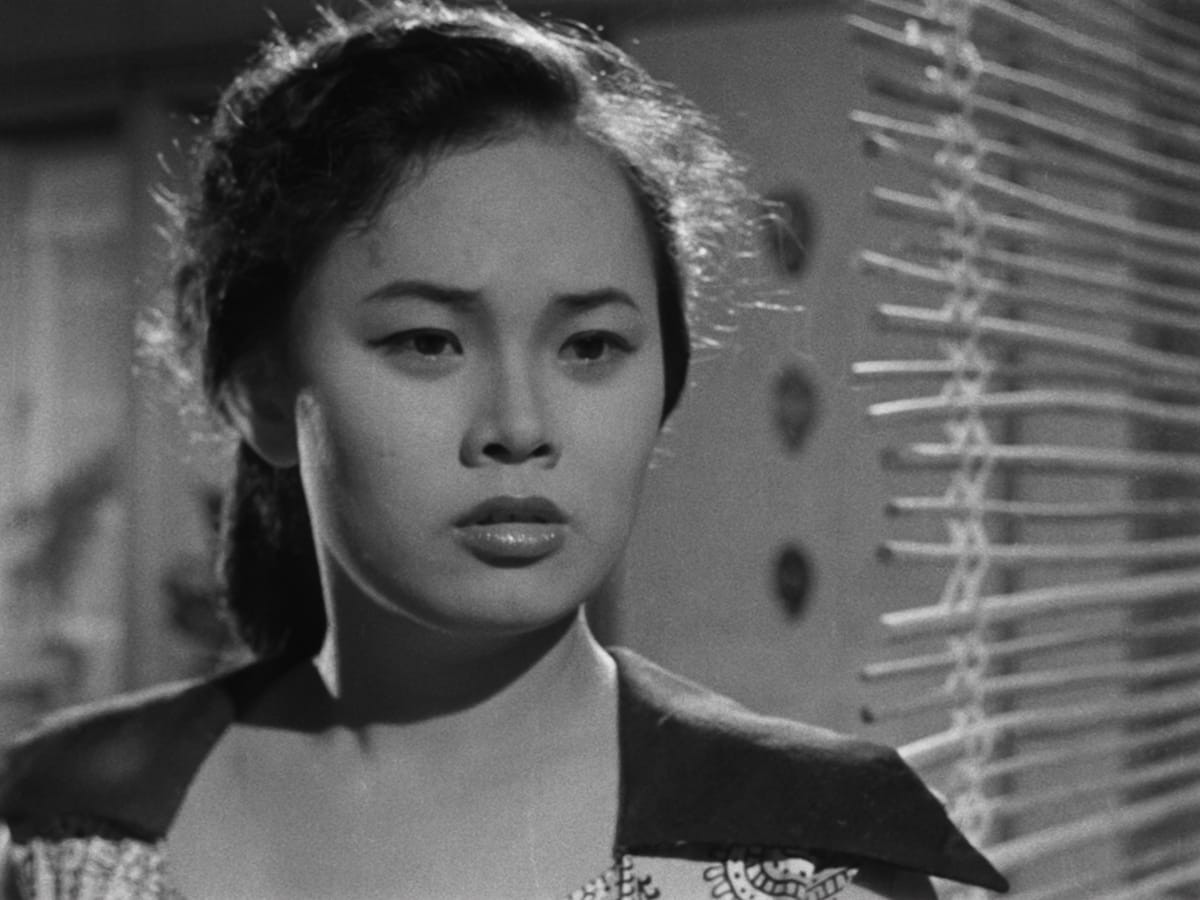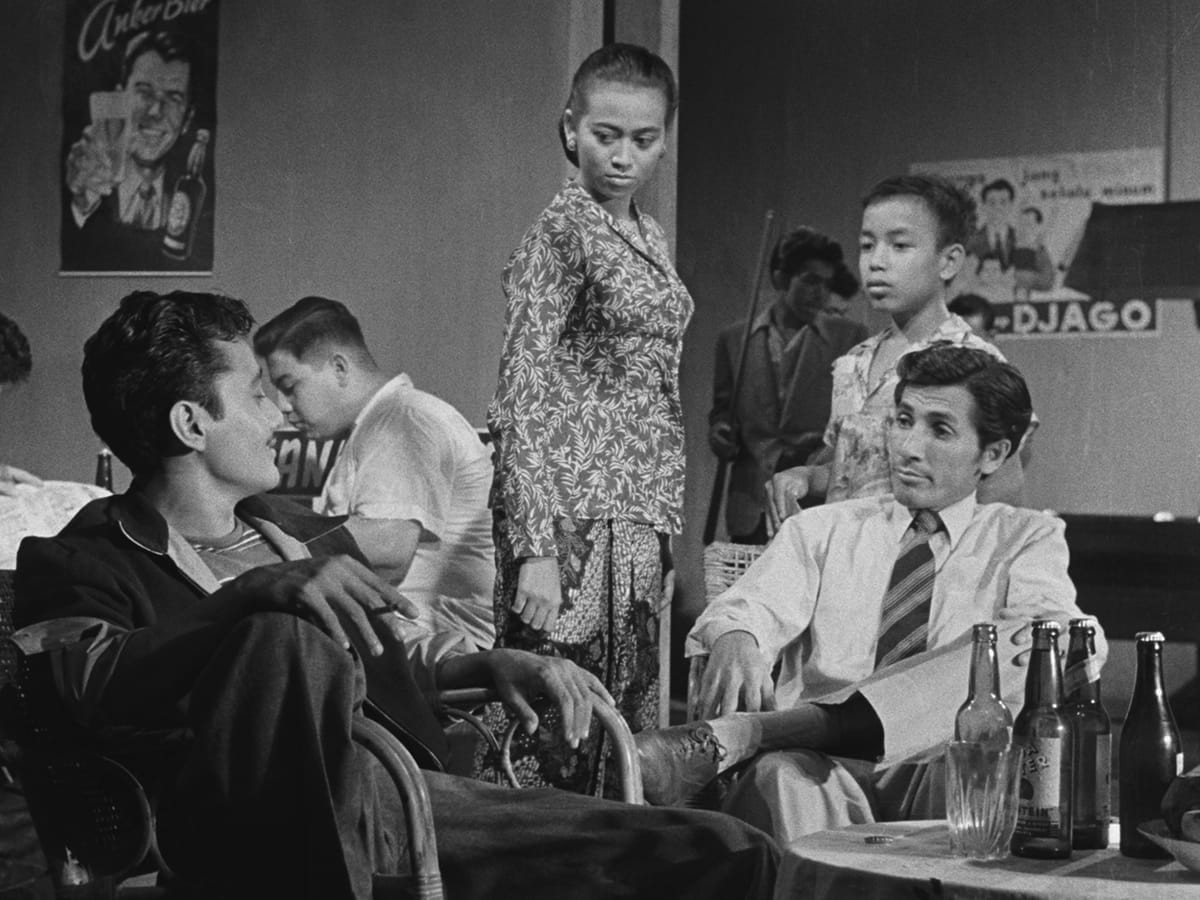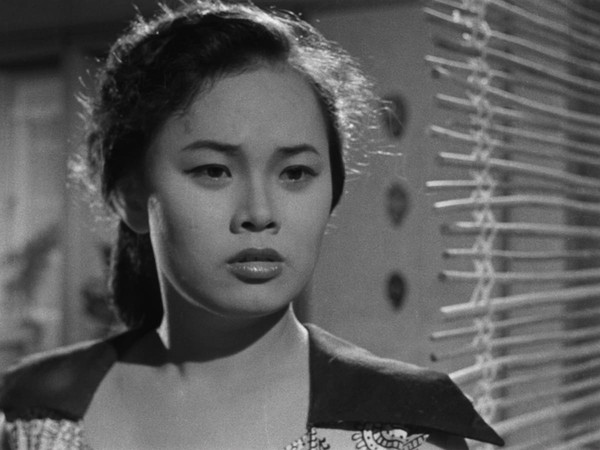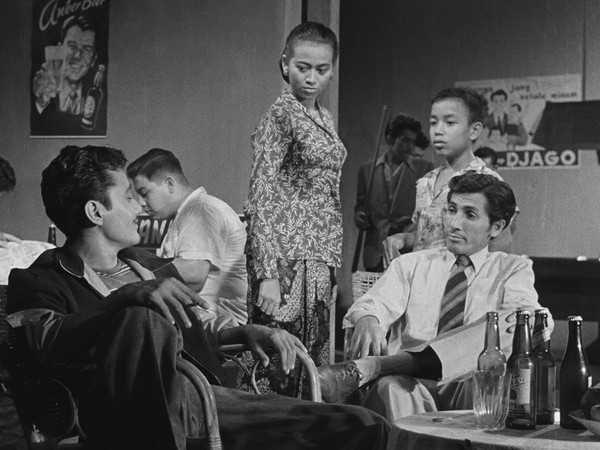After the Curfew

L'histoire passionnante d'un héros révolutionnaire indonésien qui retourne à la vie civile après la libération du joug colonial néerlandais.
After the Curfew (Lewat Djam Malam) aborde de front un moment crucial de l'histoire indonésienne: les conséquences de la révolution républicaine qui, pendant quatre ans, a mis fin à la domination néerlandaise. Ce film visuellement et dramatiquement puissant traite de la colère et de la désillusion, du rêve d'une nouvelle société dévalorisée et déformée par la répression gouvernementale d'une part, et par la complaisance bourgeoise d'autre part.
Festivals & prix
Honored at the Citra Film Awards in Indonesia in 1955
Restored in 2012 by the National Museum of Singapore and the World Cinema Foundation in association with Konfiden Foundation, Kineforum of the Jakarta Arts Council and family of Usmar Ismail Estate. Restoration work was carried out at Cineteca di Bologna/L’Immagine Ritrovata laboratory. Restoration funding provided by Doha Film Institute.





Fiche technique
Voulez-vous montrer ce film?
Merci de remplir ce formulaire.
Merci de nous contacter
Revue de presse
«Scripted by the poet Asrul Sani and directed by Usmar Ismail this little known classic is widely regarded in the archipelago as one of the most important in the history of Indonesian cinema. Fueled by political anger and disillusionment, this passionate, visually potent work looks directly at a crucial moment of conflict in Indonesian history: the aftermath of the four-year revolution which brought an end to Dutch rule. Usmar Ismail enjoyed his greatest success with this heartbreaking tale of a revolutionary hero’s return to civilian life, and his confrontation of a new society cheapened by government repression and bourgeois complacency.» The Wellington Film Society
«Le réalisateur Usmar Ismail est généralement considéré comme le père du cinéma indonésien, et l'ensemble de son œuvre est directement lié à l'évolution de la société indonésienne. Il a commencé comme dramaturge et fondateur de Maya, un collectif théâtral créé pendant l'occupation japonaise. C'est à cette époque qu'Ismail s'est intéressé au cinéma. Il a commencé à réaliser des films pour Andjar Asmara à la fin des années 1940, puis a fondé Perfini (Perusahaan Film Nasional Indonesian) en 1950, qu'il considérait comme ses véritables débuts en tant que cinéaste. Coproduit par Perfini et la société Persari de Djamaluddin Malik, After the Curfew est sans doute son plus grand succès critique et public.» Cinema Ritrovato Bologna 2012



